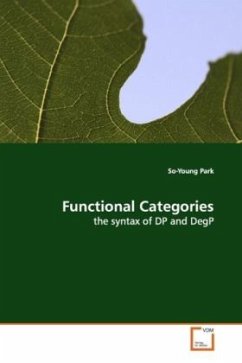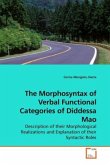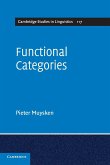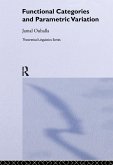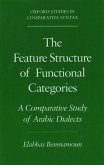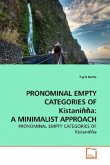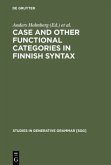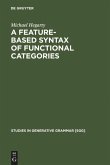The division labor between the lexicon and the
syntax has been a major topic within the generative
grammar for decades. Many linguists have been
occupied with assigning more central information to
the lexicon in order to explain the syntactic
behaviors which seem to be dependent on the lexical
semantics of certain items. This book, however,
argues that the syntax-driven approach, whereby
properties of grammatical structures, typically
having been assumed to be associated with lexical
items, are reduced to general syntactic
considerations, can provide straightforward accounts
to various domains of nominal and adjectival
constructions. The sets of functional projections
responsible for forming nominal and adjectival
phrases are also identified, which are considered
universally attested and necessitated even in East
Asian languages, which have been known as the
languages with impoverished functional categories.
This book will be useful to linguists interested in
the syntax-semantics interface issues especially in
the nominal and adjectival constructions and also
serve as a reference source for those interested in
East Asian languages including Korean.
syntax has been a major topic within the generative
grammar for decades. Many linguists have been
occupied with assigning more central information to
the lexicon in order to explain the syntactic
behaviors which seem to be dependent on the lexical
semantics of certain items. This book, however,
argues that the syntax-driven approach, whereby
properties of grammatical structures, typically
having been assumed to be associated with lexical
items, are reduced to general syntactic
considerations, can provide straightforward accounts
to various domains of nominal and adjectival
constructions. The sets of functional projections
responsible for forming nominal and adjectival
phrases are also identified, which are considered
universally attested and necessitated even in East
Asian languages, which have been known as the
languages with impoverished functional categories.
This book will be useful to linguists interested in
the syntax-semantics interface issues especially in
the nominal and adjectival constructions and also
serve as a reference source for those interested in
East Asian languages including Korean.

